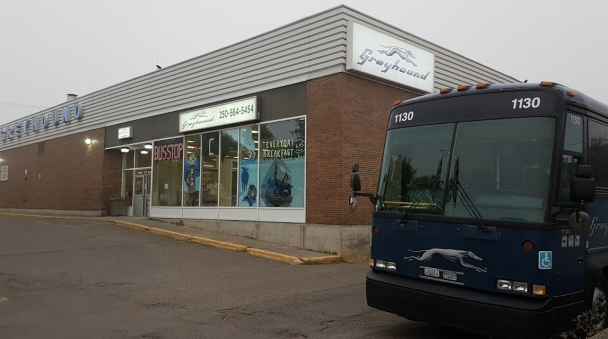
Rural Transportation Proposal from Greyhound Canada
Providing rural transportation is a challenge across BC. Four months after making a request to the B.C. Transportation Board to drop several routes, Greyhound Canada has proposed a solution to save inter-city bus service in rural areas.
The transportation provider is asking the B.C. government to create what it calls a Connecting Communities Fund.
“We’re drawing this directly from the U.S., where Greyhound does draw from this type of funding,” says Peter Hamil, Greyhound V.P. for Western Canada. “Connecting communities over 400 miles is where the challenge is, and this is where this type of funding for this type of model will alleviate that,” added Hamil.
“The federal government allocates a certain portion of their transportation funding to rural communities. The issue here is there is no specific rural community fund.”
Hamil says they are not looking for a direct subsidy, adding that the transportation company might not even benefit from their request.
The fund would be made available to Municipalities and First Nations to seek bids from different transportation providers for inter-city routes.
“This is a general funding model that we believe is something that has to be done in order to make rural transportation sustainable,” says Hamil.
Greyhound has faced challenges in recent years, with diminishing ridership, escalating costs and the challenge of competing against government-subsidized fares. Greyhound has filed an application with the B.C. Passenger Transportation Board to eliminate service on five routes in British Columbia that have experienced a 51 per cent reduction.
Hamil says provincial and federal governments spend billions on urban transit services and B.C.’s rural communities deserve transportation investments too.
98 Mile House resident Karen Simonson said she’d like to see something like what Greyhound is proposing put in place for rural transportation.
“If you don’t have a car where we live, you pretty much are stranded,” Simonson said.
Prince George Mayor Lyn Hall said the current Greyhound schedule failed to serve passengers.
“It puts people in predicaments at a location very, very late at night or early in the morning,” he said.

A small group showed up in Prince George for the first in a series of public hearings focused on whether Greyhound will be allowed to leave northern British Columbia. (Audrey McKinnon/CBC)
“We want people to have safe travels in the north … we’d certainly like to see schedules that are enabling folks to be safe while they are waiting for the bus.”
Hall said he understood Greyhound’s business concerns, and he would be open to a model where government helps maintain intercity transit in the region.
“I hope there’s a willingness on all parts to come to the table to see what can be done.”
